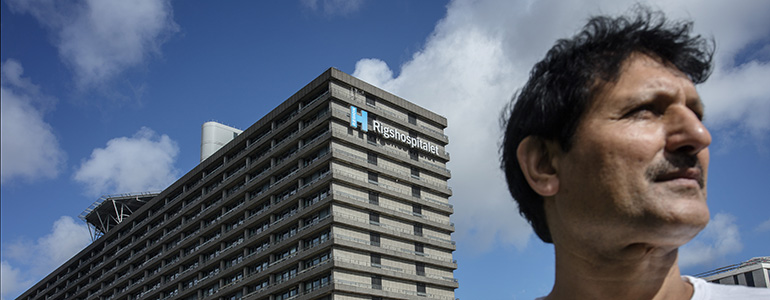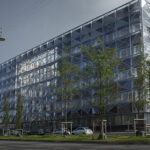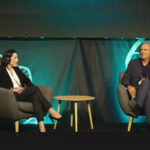Innovation becomes core business for University Hospital Rigshospitalet
Treating sick people is- and always will be- the most important task for a hospital. Innovation, however, plays an increasing role in this task for Copenhagen Science City-partner the university hospital Rigshospitalet. Now, hospital management is introducing innovation as a core business. The aim is to introduce more novel solutions of value to the patients. By Jes Andersen.
Increasing focus on innovation
Doctors and nurses have always invented new tools and processes. Over the past decade, Rigshospitalet has increased its emphasis on supporting innovation. From backing single projects over establishing an innovation centre to now, where everyone in the organisation should be able to develop or use novel solutions.
The need for healthcare is increasing. Staff and other resources are not. We need innovation to meet this challenge because it creates a bridge from research to clinic. I hope innovative thinking becomes part of the DNA of every member of staff in our hospital”: Martin Magelund Rasmussen, Member, Board of managers, Rigshospitalet.
A huge task
In early 2023 Rigshospitalet restructured its administration around four core businesses, innovation being one of them.
The organisational change is rapidly making it clear to all leaders at the hospital, that innovation is important to every specialisation and every clinic. It is, however, also making it clear to top management, that this is a huge task. It requires investments, new structures, and new ways of employee development”: Martin Magelund Rasmussen, Member, Board of managers, Rigshospitalet.
Policymakers and first port of call
Innovation is spreading throughout the organisation, and Rigshospitalet now has a staff unit, Unit for innovation and research, dedicated to furthering innovation at the hospital. The tasks of the unit are increasingly focussed on articulating policy and designing processes, yet it is also first port of call for hospital staff who want to work with innovation, for researchers from other institutions and for companies that dream of developing the next device.
We still guide would-be innovators where to go and when, but we are becoming choosy. We now screen innovation projects to make sure they cover universal needs. We prefer that clinicians and researcher from other organisations go through one of our programmes. For example, Beta Health. As for private companies, we suggest that they mature their projects with start-up communities such as Nordic Health labs”: Rune Holdt, Interim head of Research and Innovation, Rigshospitalet.
Television shifted attitudes
Innovation faces many barriers in the healthcare sector. Staff is busy, so incentives need to address this. Regulation is strict for medicine as well as for medical devices, and IT infrastructure can sometimes be difficult. All of these challenges are being addressed. Still, Holdt believes that the biggest shift in attitudes has come thanks to a television programme about entrepreneurship.
We do experience a certain “Løvens Hule” (“Dragons Den” in the UK) effect. Earlier, innovation was the realm of firebrands and activists. Now it seems that anyone in research is gaining interest in innovation. We also have high hopes for a new initiative, where selected staff can be on contract to spend up to 80 % of their time on innovation”: Rune Holdt, Interim head of Research and Innovation, Rigshospitalet.
Innovation now strategic goal of all innovation district partners
With the restructuring at Rigshospitalet, all Copenhagen Science City-partners now have innovation at the heart of their organisation and strategic goals. University of Copenhagen introduced innovation as one of three central principles in the 2030 strategy it launched in April 2023 and University College Copenhagen (Københavns Professionshøjskole) has introduced innovation training in all its education programmes.
About Copenhagen Science City
Join us in Copenhagen Science City – a world-class innovation district where you can transform your bright ideas into growth, jobs, and global solutions.
- Co-locate with University of Copenhagen, University Hospital Rigshospitalet, University College Copenhagen and 500 innovative companies.
- Co-create with 40,000 researchers, staff, and students.
- Collaborate to develop new solutions to societal challenges.
- Find a job with leading academic institutions and deep-tech companies.




